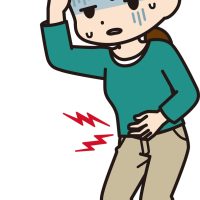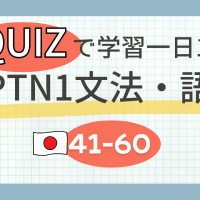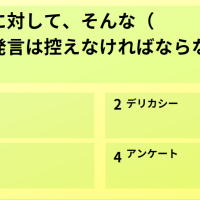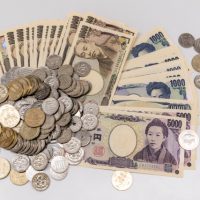There are two types of adjectives in Japanese. Let’s study how to use “い adjectives” first.
きほんけい: きほんけい(基本形)は、かぞく(家族)や ともだち(友達)と はなすとき(話す時)に つかい(使い)ます。
Dictionary form: We use the dictionary form for speaking to our family and friends.
です・ますけい: です・ます形は、あまりしらない人や じょうし(上司)、めうえ(目上)のひとと 話す時に つかいます。
Desu Masu form: When we want to speak more politely, we use the “Desu Masu form”.
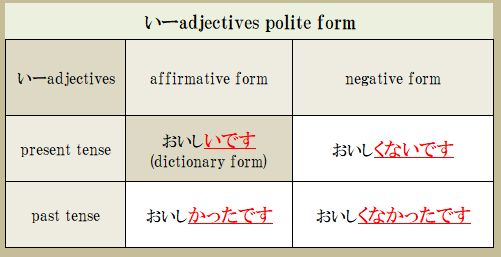
い-adjective sentences
1: My mother is kind.
わたしの ははは やさしいです。
2: Tomoko’s father is strict.
ともこさんの おとうさんは きびしいです。
My father is not so strict.
わたしの ちちは そんなに きびしくないです。
3: Mr Yamada sold his old car last year.
やまださんは きょねん ふるい くるまを うりました(売りました)。
Mr. Yamada got a new car last year.
やまださんは きょねん あたらしい くるまを かいました。
4: It was hot yesterday.
きのうは あつかった です。
It was not so hot the day before yesterday.
おとといは そんなに あつくなかったです。
5: My friend Tom’s dog isn’t very cute.
わたしのともだちの トムさんの いぬは そんなに かわいくないです。
6: I don’t really want to buy an expensive Chanel bag.
わたしは たかい シャネルの バッグなんか そんなに ほしくないです。
7: I’m sleepy.
わたしは ねむたいです。
8: We want to drink some coffee.
わたしたちは コーヒーを のみたいです。
9: My husband was on a business trip to Japan last month.
わたしの おっとは せんげつ 日本に しゅっちょう しました。
I wanted to go to Japan with him.
わたしは かれと いっしょに 日本に 行きたかったです。
10: Earthquakes are very scary because you never know when one might happen.
じしん(地震)は いつ起こるかわからないので とても こわいです。
11: Most Japanese people are embarrassed while speaking English.
おおくのにほんじんは えいごをはなすのが はずかしいです。
Let’s talk about “こわい”!
Can you tell me about something you’re scared of? What is ”こわい” for you?
For example, Yukiko is afraid of dogs.(ゆきこさんは 犬が こわいです)
Tatsuya is afraid of injections. (たつやさんは ちゅうしゃが こわいです)
How about you? Are you afraid of injections?
あなたは どうですか? あなたは ちゅうしゃが こわいですか?
If you are, please respond, ”はい、こわいです”, but if you are not, please respond, “いいえ、こわくないです”.
い adjectives: feelings
I’m glad. うれしいです
I’m sad. かなしいです
I’m lonely. さみしいです
I miss you. あなたが いなくて さみしいです
It’s fun. たのしいです
I’m scared. こわいです
I’m bored. つまらないです
Let’s try to conjugate the い adjectives above.
Can you tell me, “I was glad; I was not sad,” in Japanese?
looks + いadjectives
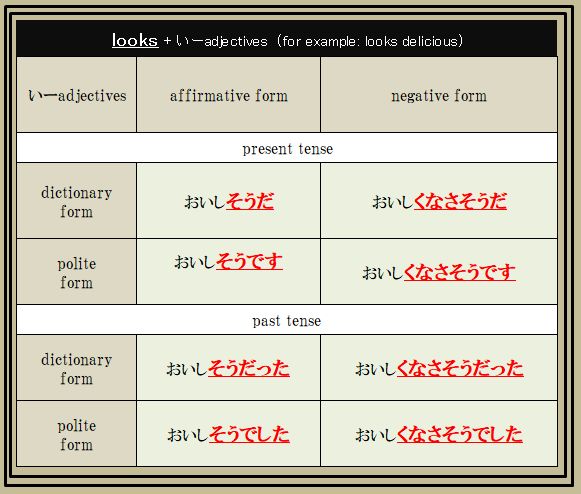
For examples:
1. Making a website looks difficult.
ホームページをつくるのは むずかしそうです。
2. This crossword puzzle looks easy.
この クロスワードパズルは やさしそうです。
3. Tatsuya looks kind.
たつやさんは やさしそうです。




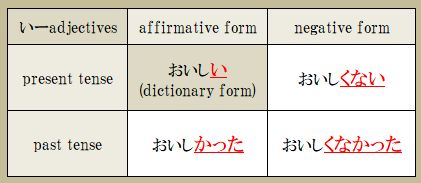

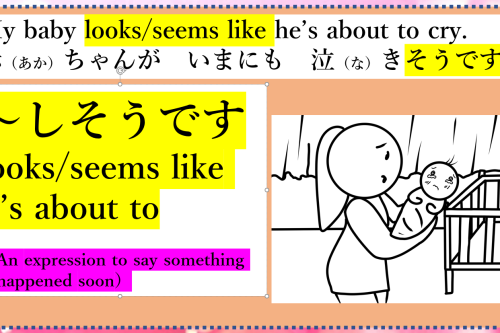
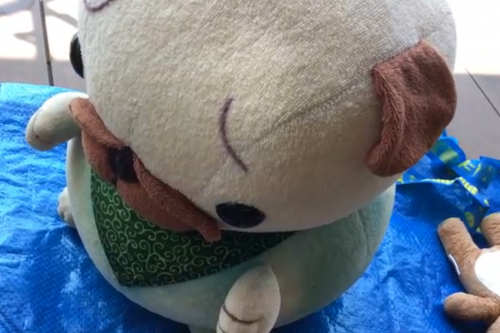



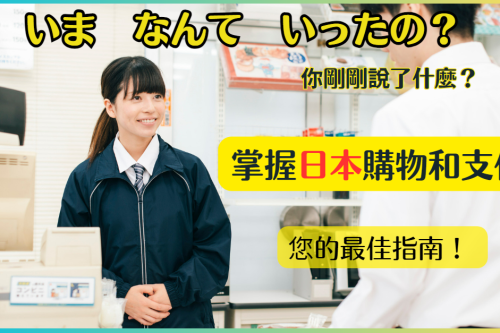
 Yukiko
Yukiko





